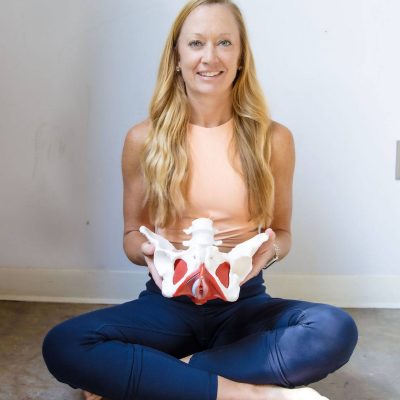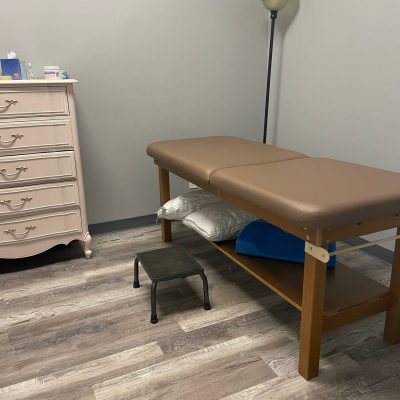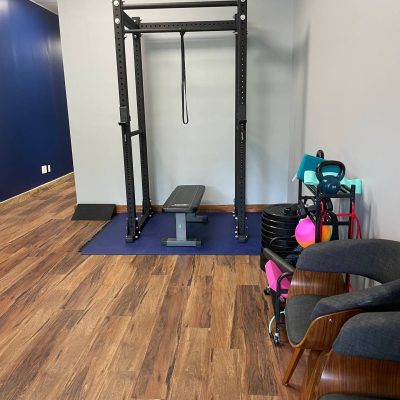Back pain related to breastfeeding is a common issue that many mothers experience, but it’s not something you have to tolerate! There are several potential reasons for this discomfort:
- Poor posture: Holding a baby for feeding can sometimes lead to poor posture, such as slouching or hunching over, which can strain the muscles in the back and neck.
- Repetitive movements: Breastfeeding involves repetitive motions, such as holding the baby in a specific position for feeding multiple times a day. Over time, these repetitive movements can lead to muscle fatigue and strain.
- Hormonal changes: During pregnancy and breastfeeding, hormonal changes can affect the ligaments and joints in the body, potentially contributing to back pain.
- Breast size: Larger breasts can put more strain on the back when breastfeeding, especially if the mother is not using proper support or positioning.
- Previous back issues: Women who have had previous back problems may find that breastfeeding exacerbates their discomfort.
To help alleviate back pain related to breastfeeding, consider the following tips:
- Maintain good posture: Sit upright with your back well-supported while breastfeeding. Use pillows or cushions to support your arms and the baby to reduce strain on your back.
- Use proper breastfeeding positions: Experiment with different breastfeeding positions to find one that is comfortable for you and puts less strain on your back. Common positions include the cradle hold, football hold, and side-lying position.
- Take breaks: If possible, take breaks between feedings to stretch and relax your back muscles.
- Stay active: Gentle exercises and stretches, such as yoga or swimming, can help strengthen the muscles in your back and improve posture.
- Supportive bras: Invest in a well-fitting, supportive nursing bra to help alleviate strain on your back from heavy breasts.
- Seek professional help: If the back pain persists or becomes severe, consider consulting a pelvic floor physical or occupational therapist or a lactation consultant for further advice and support.
Pelvic Floor Physical and Occupational Therapy can be very beneficial for thoracic pain related to breastfeeding. A physical or occupational therapist can provide personalized exercises, stretches, and techniques to help alleviate pain and improve posture. Here are some common strategies that a physical therapist might recommend:
- Postural exercises: Strengthening exercises targeting the muscles of the back, shoulders, and core can help improve posture and reduce strain on the thoracic spine. These exercises may include rows, shoulder blade squeezes, and chest stretches.
- Thoracic mobilization: Manual therapy techniques, such as soft tissue mobilization and joint mobilization, can help improve mobility and reduce stiffness in the thoracic spine.
- Breathing exercises: Deep breathing exercises can help relax the muscles of the chest and upper back, reducing tension and improving thoracic mobility.
- Stretching: Gentle stretches for the chest, shoulders, and upper back can help relieve tightness and improve flexibility in the thoracic spine.
- Education and ergonomic advice: A physical or occupational therapist can provide guidance on proper breastfeeding positions and techniques to reduce strain on the thoracic spine. This may include using pillows or cushions for support, adjusting the height of the breastfeeding chair or pillow, and taking regular breaks to change positions.
- Pain management techniques: Modalities such as heat, ice, or electrical stimulation may be used to help manage pain and reduce inflammation in the thoracic region.
- Functional training: Incorporating functional movements and activities of daily living into your rehabilitation program can help improve strength, flexibility, and endurance in a way that directly benefits your ability to breastfeed comfortably.
It’s essential to consult with a Physical or Occupational Therapist who has experience working with postpartum women and breastfeeding mothers. They can assess your specific needs and develop a tailored treatment plan to address your thoracic pain effectively. Additionally, if you’re experiencing any other symptoms or concerns, such as difficulty latching, engorgement, or mastitis, a lactation consultant or healthcare provider specializing in breastfeeding may also be able to offer additional support and guidance.







